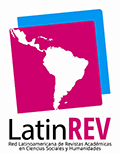The Long Road of Personal Rights
Abstract
Looking back, five phases in the history of human rights can be identified. The phase of first theorization is rooted in pre-Christian, Greco-Roman culture and, by placing the “person” at the center of legal debate, spread throughout European culture in substantial continuity until the 18th century. The first phase of codification is tributary, starting in the 13th century, of the English and African constitutional traditions, and, from the 18th century onwards, to the American and French constitutional traditions. The internationalization phase began with the creation of the League of Nations (1919) and gradually led to the disappearance of the hitherto predominant notion that the treatment of the individual was a matter for the “national jurisdiction” of each nation-state. The universalization phase began with the creation of the United Nations (1945) and led (with the proclamation of the Universal Declaration of Human Rights in 1948) to a new international order, in which the rights of the individual tended to be asserted not only “within” states, but also “against” states. The initial naïve philosophy of the globalization phase was that the development of trade would itself foster cooperation between peoples and, with it, the progressive assertion of individual rights.
Looking to the future, it is necessary to start from the fact that the current era is characterized by the difficulty of bringing together non-homogeneous legal systems, in the absence of a unitary global legal system, in which individual rights and duties of solidarity are placed in a universal and complementary relationship. In this context, the problem of the validity of the protection system, affirmed by the United Nations at the end of the Second World War, and the need to think of a Security Council organized in a different way are more topical than ever. On the other hand, it is necessary to address the so-called anthropological question and to ask who is the human person, the holder of the rights that are to be solemnly asserted.
Downloads
References
Amadio, A. y Checchini, G. (2020). Lezioni di diritto privato. Giappichelli.
Amato Mangiameli, A. C. (2004). Stati post−moderni e diritto dei popoli. Giappichelli.
Baldassarre, A. (1997). Derechos de la persona y valores constitucionales.
Beck, B. (1999). Che cos'è la globalizzazione. Rischi e prospettive della società planetaria. Carocci.
Benedicto XVI. (18 de abril de 2008). Encuentro con los miembros de la Asamblea General de las Naciones Unidas. Discurso de su santidad Benedicto XVI. Libreria Editrice Vaticana. https://www.vatican.va/content/benedict-xvi/es/speeches/2008/april/documents/hf_ben-xvi_spe_20080418_un-visit.html.
Benedicto XVI. (2015). Elementi per una discussione sul libro di Marcello Pera. En Pera, M., Diritti umani e cristianesimo. Marisilio.
Bobbio N. (1992). La Edad de los Derechos. Doce lecciones sobre derechos humanos.
Bobbio N. (1994). Contributi ad un dizionario giuridico. Giappichelli.
Bobbio N. (2000). Dal privilegio al diritto. Apulia.
Cartabia, M. (2011). I nuovi diritti. Stato, Chiese e pluralismo confessionale, (14). https://doi.org/10.13130/1971-8543/857.
Cassese, S. (2009). I Tribunali di Babele. I giudici alla ricerca di un nuovo ordine globale. Donzelli.
Churchill, W. (2000). La resa tedesca. En La Seconda Guerra Mondiale (Trad. A. Barone, G. Cambon, O. Ceretti Borsini, G. Monicelli). Mondadori.
Cicerón (s.f.). De re publica.
Clark, I. (2001). Globalizzazione e frammentazione. Le relazioni internazionali nel XX secolo. Il Mulino.
Conti, M. (2021). La Carta Manden. Diritti e doveri dell’Africa del XIII secolo. Nardini.
Cotta, S. (1989). Persona. Diritto, Persona Mondo umano. Giappichelli.
Cotta, S. (1991). Il diritto nell’esistenza. Linee di ontofenomenologia giuridica. Giuffrè.
Croce, B. (1942). Perché non possiamo non dirci “cristiani”. En Discorsi di varia filosofia (Vol. II). Gius Laterza & Figli.
D'Agostino, F. (2011). Corso breve di filosofia del diritto. Giappichelli.
Didonato, L. (2020). Diritti Umani – Intervista a Vittorio Possenti. Personal al Centro. https://personalcentro.eu/segnalazioni/articoli-stampa/intervista-a-vittorio-possenti.
Donati, P. (2022). Il diritto di famiglia come diritto relazionale. Il diritto della famiglia e delle persone, (4).
Facchi, A. (2007). Breve storia dei diritti umani. Il Mulino.
Fazio, M. (1998). Due rivoluzionari: F. de Vitoria e J.J. Rousseau. Armando.
Galgano, F. (2009a). Danno non patrimoniale e diritti dell'uomo. Contratto e impresa, 25(4-5), 883-894.
Galgano, F. (2009b). Globalizzazione dell'economia e universalità del diritt. Politica del Diritto, (2), 177-192.
Gianniti, P. (2024). Pensamiento social cristiano y derechos de la persona. Revista Jurídica Austral, 5(1), 351-377. https://doi.org/10.26422/RJA.2024.0501.gia.
Goodhart, A. L. (1946). The Legality of the Núremberg Trials. Judicial Review.
Grossi, P. (2014). Sull'odierna “incertezza del diritto”. Giustizia Civile, (4), 921-955.
Hart H. (2002). Il concetto di diritto. Einaudi.
Heraclitus. (s.f.). Leucipo.
Jellinek (1895). La Declaración de los Derechos del Hombre y del Ciudadano.
Juan Pablo II. (1995). Evangelium vitae. Libreria Editrice Vaticana. https://www.vatican.va/content/john-paul-ii/es/encyclicals/documents/hf_jp-ii_enc_25031995_evangelium-vitae.html.
Kant, I. (1995). Fondazione della metafisica dei costumi. En Scritti morali. (Trad. P. Chiodi). Rizzoli.
Kelsen, H. (1944). Peace through Law. Chapel Hill.
Lombardi Vallauri, L. (2002). Diritti dell’uomo e diritto pleromatico, en Ragion pratica, (18), 155-157.
Manzoni, A. (2015). La rivoluzione francese del 1789 e la rivoluzione italiana del 1855. Giorgio Pozzi.
Marchesi, C. (1945). La persona umana nel Comunismo. Casa Editrice Realtà.
Marinelli, F. (2014). Il mugnaio di Sans-souci. La storia come metodo nell'interpretazione giuridica. Giustizia Civile, (3), 629-646.
Maritain, J. ([1947] 1963). La persona e il bene comune. Morcelliana.
Marshall, T. ([1950] 2002). Cittadinanza e classe sociale (Trad. S. Mezzadra). Laterza.
Mounier, E. (1950). Le personnalisme. Les Presses universitaires.
Pereña, L. (1996). Relectio de Indis. La questione degli Indios (Trad. A. Lamacchia). Il Levante.
Perlingieri, P. (1972). La personalità umana nell'ordinamento giuridico. Edizioni Scientifiche Italiane.
Pernice, I. (1999). Multilevel Constitutionalism and the Treaty of Amsterdam: European Constitution-Making Revisited? Common Market Law Review, 36(4), 703-750.
Pernice, I. (2002). Multilevel Constitutionalism in the European Union. European Law Review, (5), 511-529.
Pico della Mirandola, G. (1994). Oratio de hominis dignitate. Edizioni Studio Tesi.
Polibio. (s.f.). Storie.
Renouvier, C. (1903). Le personnalisme. Revue internationale de l'enseignement, (47), 368-369.
Repetto, G. (2011). Argomenti comparativi e diritti fondamentali in Europa. Jovene.
Ricoeur, P. (1983). Meurt le personnalisme, revient la personne. Esprit. https://esprit.presse.fr/article/paul-ricoeur/meurt-le-personnalisme-revient-la-personne-17473.
Rodotà, S. (2012). Il diritto di avere diritti. Laterza.
Rosmini, A. (2013). Filosofia del diritto (4 vols., Ed. M. Nicoletti y F. Ghia). Città Nuova.
Rosmini, A. (2020). Filosofia della politica (Ed. G. Cotta). Scholé.
Santiago, A. y Bellocchio, L. (2018). Historia de la Corte Intermericana de Derechos Humanos. La Ley.
Scanni, G. (2008). Ordine e disordini nel XXI secolo. Gli Essay.
Schmitt, C. ([1928] 1984). Dottrina della Costituzione (Trad. A Caracciolo). Giuffrè.
Sen, A. K. (2002). Globalizzazione e libertà. Mondadori.
Sófocles. (s.f.). Antígona.
Spaemann, R. (s.f.). Discussions on Life 'Worth Living'. Culture and Books, (IV), 506-512.
Spaemann, R. ([1978] 2009). Rousseau cittadino senza patria. Dalla 'polis' alla natura (Trad. L. Allodi, Milán). Ares.
Todorov, T. (2007). La scoperta dell’America. Il problema dell’altro (Trad. y ed. A. Serafini). Franco Angeli.
Trujillo, I. (1997). Francisco de Vitoria: il diritto alla comunicazione e i confini della socialità umana. Giappichelli.
Trujillo, I. y Viola, F. (2014). What human rights are not (or not only). Nova.
Ventura, L. (2013). Rigore costituzionale ed etica repubblicana. Distorsione dei principi costituzionali in materia di democrazia e forma di governo. Forum di Quaderni Costituzionali. https://www.forumcostituzionale.it/wordpress/images/stories/pdf/documenti_forum/paper/0407_ventura.pdf.
Violante, L. (2015). Il dovere di avere doveri. Einaudi.
Zagrebelsky, G. (2008). La legge e la sua giustizia. Il Mulino.
Copyright (c) 2024 Pasquale Gianniti

This work is licensed under a Creative Commons Attribution-NonCommercial-NoDerivatives 4.0 International License.
This license allows the copy, distribution, exhibition and representation of the work provided authorship is acknowledged and the work is properly quoted. Commercial use of the original work or the generation of derived works are not allowed.
The authors hereby guarantee the right to the first publication of the work to the Revista Jurídica Austral.
















































